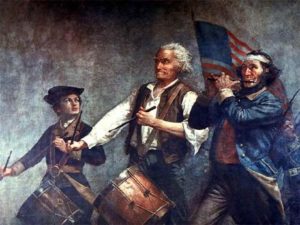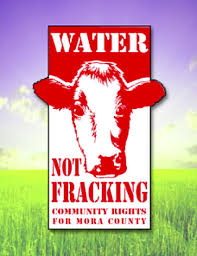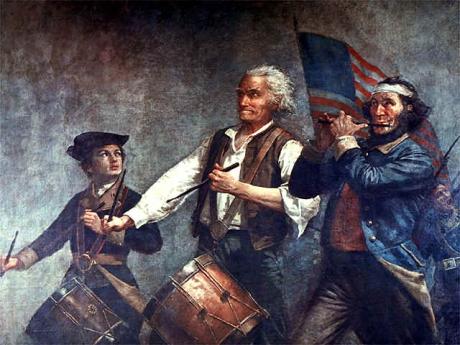After much debate by the people of the town, Colonel John Ashley, moderator of the Sheffield, Massachusetts, Town Meeting, decided it was time to call for a vote. He then watched as every person in the hall raised their hand. The Sheffield Declaration – declaring control by England over the people of Sheffield null and void – was adopted unanimously.
To the south, Richard Barry watched a similar scene unfold in Charlotte, North Carolina, as his neighbors proceeded to adopt the Charlotte Town Resolves (also known as the Mecklenburg Resolves for the county in which Charlotte sits) by unanimous vote. The Resolves declared that “all laws derived from the authority of the King or Parliament are annulled and vacated.”

A people’s history of the American Revolution – Howard Zinn
And so it went, as people in towns, villages, and counties – over ninety in all – collectively realized that the system of government under which they lived (which protected the rights of a few) had to be replaced by a system of government which served a much different purpose.
It was not yet 1776
Town by town, village by village, the people of the colonies began declaring their independence from England over three years before the lofty words of the U.S. Declaration of Independence were penned by the fledgling Continental Congress. They had decided that they could not wait.
The people of the colonies began declaring their independence from England over three years before the lofty words of the U.S. Declaration of Independence were penned.
Those local Declarations shared two things in common.
First, they laid out what they believed to be the basic purpose of government and declared that English rule of the colonies failed to measure up.
The Sheffield Declaration, for example, stated that “the great end of political society is to secure. . .those rights and privileges wherewith God and nature have made us free.” Those rights included the “right to the undisturbed enjoyment of our lives, liberty, and property.” Finding that the system of English rule violated – rather than protected – those rights, the people of Sheffield recognized that only their own homegrown, democratically-elected governments could “constitutionally make any laws or regulations.”
The second and perhaps more surprising commonality shared by the Declarations was that they weren’t drafted by those named Adams, Warren, or Hancock – but rather by the Bernards, Roots, Fellows, Austins, Alexanders, Harrisons, and Smiths.
In other words, it wasn’t the Boston-based patriots who brought them forward – to whom historians tend to ascribe the moving of revolutionary heaven and earth – but rather they were advanced by regular people responding to a crisis by taking matters into their own hands. That collective local lawmaking then forced an emerging nation to choose between the old and the new.
The Declarations weren’t drafted by famous Boston-based patriots – but rather by regular people responding to a crisis by taking matters into their own hands.
No longer waiting for nothing to happen
Today, political, environmental, and labor activists primarily work at the state, national, and international levels in attempts to solve the many crises that we face.
Unfortunately, institutions at those levels have failed to take any real steps to solve the big crises because doing so would diminish the power that those institutions hold, as well as stop the largest economic actors from advancing their own interests through the use of those institutions.

http://www.bbc.com/news/science-environment-34953626
And so we wait for the international community to stop global warming. We wait for our state legislatures to stop fracking communities for oil and gas. We wait for Congress to protect employee rights in the workplace and ban assault weapons. We wait for the president to stop Keystone XL. We wait for the USDA to stop legalizing genetically modified foods.
We wait for someone else to protect nature against an economic engine that demands (indeed, requires) the endless production and consumption of more stuff. We vent through endless editorials, while appealing endless permits and testifying in front of microphones that aren’t even turned on.
We wait. Because that is what we have been carefully trained to do. It is what big environmental, labor, and political organizations have trained us to do. It is what the corporations and our culture have trained us to do. Wait for others to come to realizations that we’ve already arrived at, and wait even longer for solutions in the face of a system that cares very little for the rest of us.
Isn’t it time to stop waiting for something that’s never going to come?
Isn’t it time to stop waiting for something that’s never going to come? In the words of Derrick Jensen – author of Endgame and The Culture of Make Believe – “when we stop hoping for external assistance, when we stop hoping the situation will somehow not get worse, then we are finally free – truly free – to honestly start working to resolve it. When hope dies, action begins.”
Some have now grown tired of waiting for nothing to happen. And what they’ve begun to do bears a remarkable similarity to the colonial townspeoples who finally gave up hoping that England would leave them alone.
Like the colonists, people in communities today across the country aren’t waiting for permission from any “higher” authority. And, perhaps not surprisingly, their work shares those two other common threads that joined together the ninety-plus villages and towns which adopted those early Declarations.
First, communities are calling out the current governmental system for what it is – a system that only protects the rights of a few – and are organizing to establish a new system, beginning at the local level, which operates differently. Second, those driving this new system are people that you’ve probably never heard of – they’re not the Clintons, Feinsteins, or Reids – but rather names like Olivas, Norton, and Martin.
Mora County, NM: Establishing a Community Bill of Rights
In 2012, the people of Mora County, New Mexico, became the first people at the county level in the U.S. to ban oil and gas extraction through the adoption of a new law – a “community bill of rights” – which protects their right to clean air, clean water, and a sustainable energy future.

In adopting their ban, the people of Mora joined over 160 other communities across the country that are using their cities, towns, counties, and villages to create a new system of government – one that protects the rights of everyone to an economically and environmentally sustainable community. It is one in which the people of a community have more rights than corporations and their managers, where ecosystems have rights of their own, and where local governments possess the power to protect health and safety even in the face of state legislatures whose interests lie in other directions.
And just like their colonial forebears – who didn’t seek independence through special English courts, like boards of trade – today’s communities, while hoping for courts and judges to side with them when challenges to those local laws come, are not counting on it.
Occupying the law: Driving change from the grassroots to the state and federal level
In places where a critical mass of these laws have been adopted, people are now gathering across different issues to launch state organizations focused on creating this new system through state constitutions, and eventually, through the federal constitution.
“People have rights and corporations don’t. What we’re looking for is individual liberty and local control.”
Some have described this as the next big social movement – one which “occupies the law” by turning municipal lawmaking into a vehicle of social change. A movement engaged in nonviolent civil disobedience against a governmental system which increasingly cannot be distinguished from our economic system – a system in which most of us lose, and only a very few ever win.
But those who are doing the work see it more simply. As Mik Robertson, chairman of the first local government to adopt a law directly challenging corporate powers, has said – “People have rights and corporations don’t. What we’re looking for is individual liberty and local control.”
Perhaps that’s the “Spirit of ‘73” we hear echoing across the centuries. It’s time we listen. It’s time we act.
Community Rights Paper #1: The Spirit of ’73 and the Right to Local Self-Government

